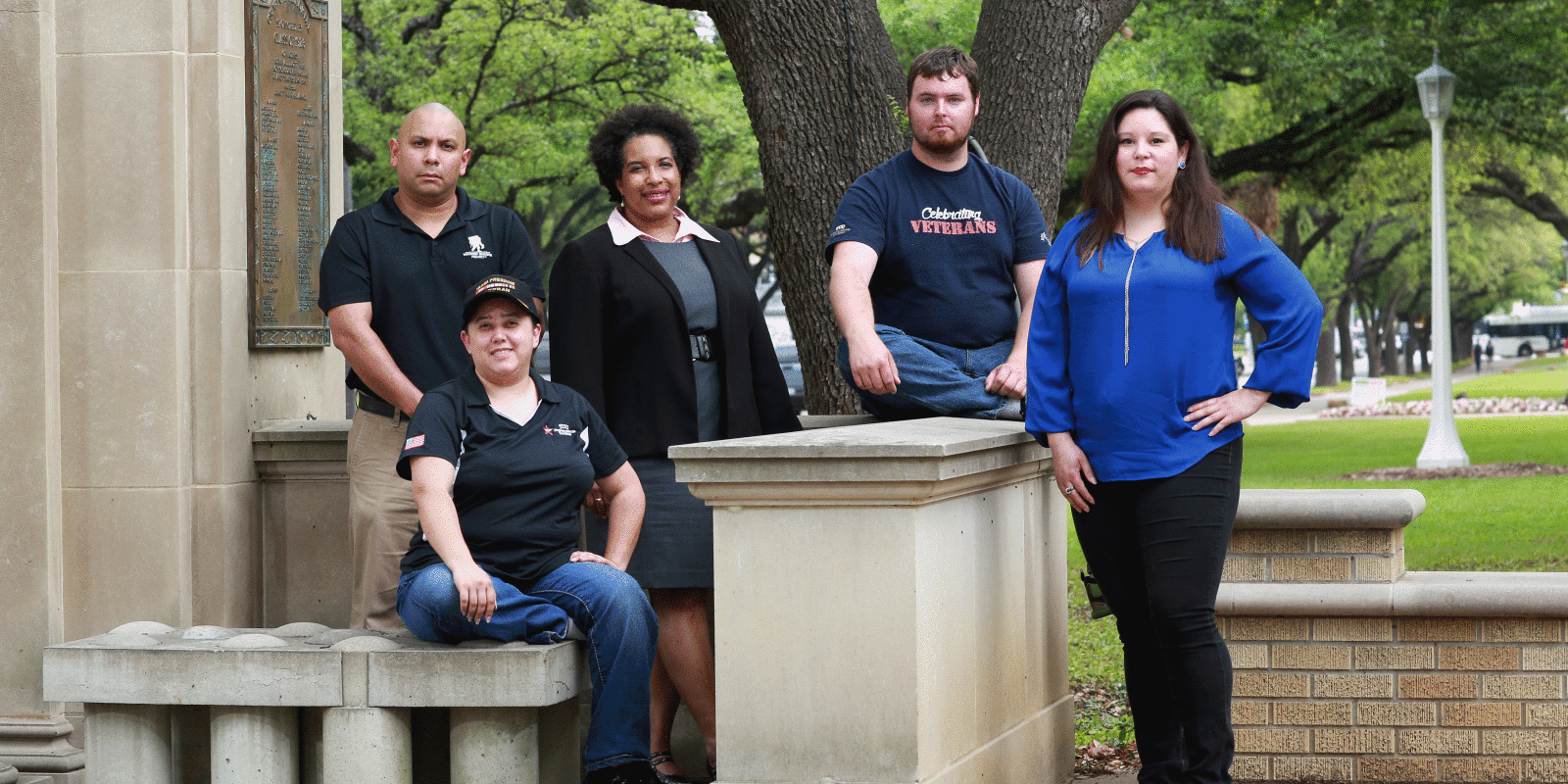
Scholarships Bring Veterans to Campus
In 2009, the few student veterans on campus could not identify one another. Today, TCU is home to more than 300 student veterans tethered together by broad university support.
Driving home from class one night, Carl Castillo ’11 tried not to panic, even though the bright streetlights made him edgy. Eighteen months earlier, the Marine veteran was in Iraq, where anything other than complete darkness signaled danger.
In 2009, Castillo was one of a handful of student veterans at TCU. Besides commuting to classes at the Neeley School of Business, Castillo was working several odd jobs, caring for his toddler-age daughter and enduring a divorce.
“I did feel kind of ostracized,” said Castillo, who was stationed in Ramadi before returning to college with younger classmates. “Not everybody had the mindset that I had; not everybody was going to be as focused.”
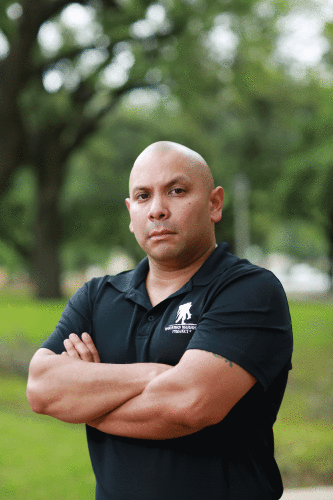
“Not everybody had the mindset that I had; not everybody was going to be as focused.” – Marine veteran Carl Castillo ’11
Today, more than 300 military veterans attend the university with the help of the revamped Post-9/11 GI Bill. Six years ago, TCU joined the Yellow Ribbon program, which sets aside scholarships for veterans that the federal government matches to make private school education a possibility.
“Their presence reminds all of us that part of our duty is beyond just ourselves and our students, but it’s to the broader community,” said Don Mills, who was vice chancellor for student affairs in 2009 and participated in the Yellow Ribbon adoption discussions.
April Brown, assistant director of inclusiveness and intercultural services, gave a talk about campus diversity at one of Castillo’s classes. Afterward, the professor introduced Castillo and Brown, who is also a Marine veteran.
Castillo and Brown discussed ways to better meet the needs of student veterans, who are often older than typical undergraduates. Inspired by that conversation, Castillo decided to organize a student veteran group on campus, but he needed at least 10 students to launch the effort.
He located two other veterans through word of mouth. The trio sent emails to random TCU addresses, asking if the recipient was a military veteran. Their efforts delivered nine more.
With 12 student veterans, the inaugural group launched an official, though informal, student association. “The primary focus of the group was to show, ‘Hey, you’re not alone here,’” Castillo said.
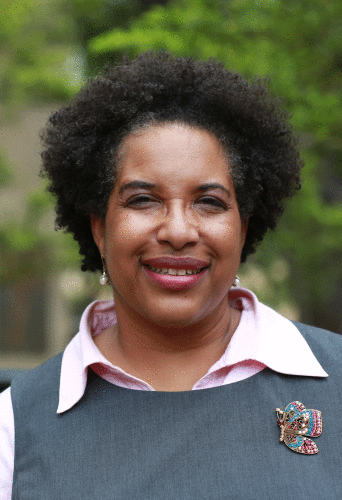
“How can we be a support system, actually be advocates?” – April Brown, assistant director of TCU’s office of inclusiveness and intercultural services.
Meanwhile, Brown recruited faculty and staff to organize a task force, telling them, “Veterans are coming back to our society, and they’re going to live in our communities,” she recalled. “So how can we be a support system, actually be advocates?”
Brown handwrote letters inviting incoming student veterans to a family-friendly orientation session. She located space in Scharbauer Hall and organized coffee breaks for student veterans to chat about university life. “They don’t have to explain to another veteran what they’ve gone through,” she said.
Because of the new affordability of attending TCU and the scaling down of active military personnel, the task force envisioned an immediate influx of veterans on campus.
Their prediction was accurate. In the second year, 40 student veterans joined Castillo’s group.
Navy veteran Elyana Ramirez enrolled at TCU in 2012 and joined the Student Veterans Alliance, which by then was reorganized as a chapter of a national organization working in tandem with Veterans of Foreign Wars.
Ramirez enlisted in the Navy to repay for $40,000 in student loans acquired earlier at a technical college. After deploying three times, which included escorting submarines through the Suez Canal and chasing Somali pirates, she was ready to give college another try, for a “fresh start.”
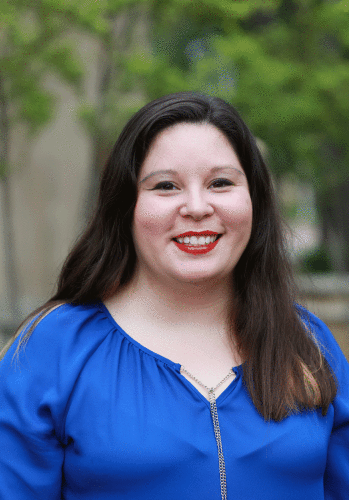
Navy veteran Elyana Ramirez brought career networking services to TCU’s student veteran organization.
As the student group’s president, Ramirez shifted the alliance’s focus to professional development. She organized a “vet-working” night and invited area employers.
Empowered by the organization, other student veterans sought ways to help their brethren on campus too.
Cristina Mungilla started TCU in 2013 after serving in the Army National Guard. At a veteran on campus, she experienced culture shock. “The campus is very much catered to the traditional student.”
Mungilla, a single mother of three, juggles multiple responsibilities, which included for a while caring a grandmother with Alzheimer’s at home. When her grandmother needed a residential facility, the student veteran could no longer afford the house and its upkeep. “I was near homelessness,” she said.
When an electric company billing glitch resulted in a power outage, Mungilla turned to the group of student veterans. They told her about TCU’s emergency student fund, which provided the $700 she needed.
“[Veterans] feel very isolated,” Mungilla said. “The concern with the isolation is making sure that they are okay, that they don’t feel alone in dealing with the transition.”
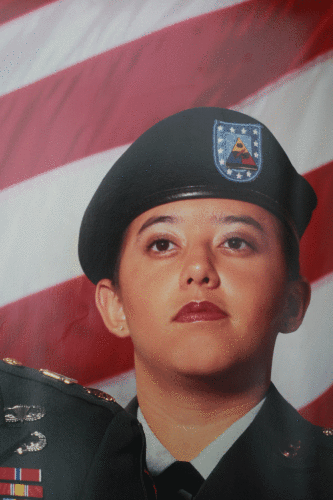
Cristina Mungilla was in the National Guard before enrolling at TCU.
To make a contribution on campus, Mungilla joined Brown’s office as a work-study student veteran assistant. “It’s been nice to find that higher purpose again,” she said.
Taking others into consideration is a trait shared by many student veterans, said Andy Lahey, a music education senior and a Marine veteran. “In the military, we’re constantly bombarded with the idea that you are not the most important person.”
When Lahey arrived at the veteran orientation session, he said the support was impressive. Financial services, for example, explained how to avoid pitfalls in the certification process, which approves tuition. Area veteran-serving groups, such as Wings of Therapy, offered ways to ease the transition to civilian life.
“It sort of reassured me that this is a place where they’re going to take care of veterans,” Lahey said.
Ramirez said potential employers should know student veterans are motivated. “Most already know why they’re in school and what they want to do,” she said.
Brown said employers stand to benefit from taking a hard look at college-educated veterans. “You have someone that can think strategically and improvise,” she said. “All of them have had leadership roles at different levels. They know how to work with people. They know how to work in diverse populations.”
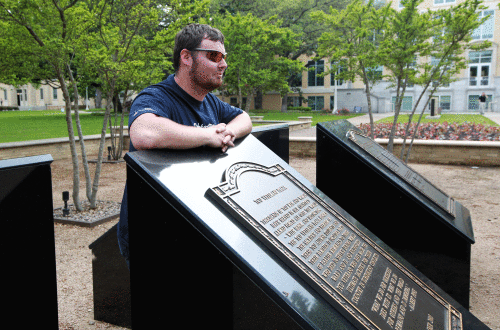
“This is a place where they’re going to take care of veterans.” – Marching band member and Marine veteran Andy Lahey

Your comments are welcome
Comments
Related Reading:
Features
Infographic: Minors
A wide variety of minors gives TCU students the chance to add depth to their majors or dive into new areas.
Features
Venture Capitalism 101
MBA students connect investors and startups in a Neeley program.